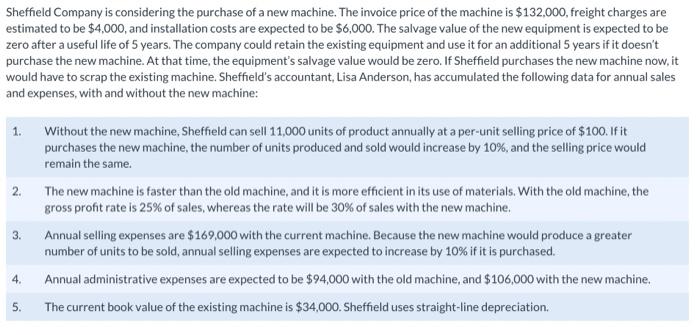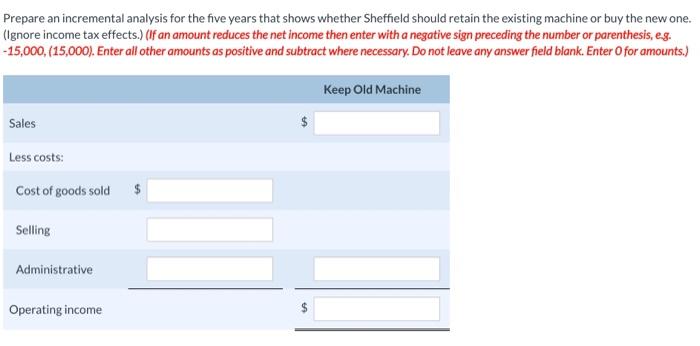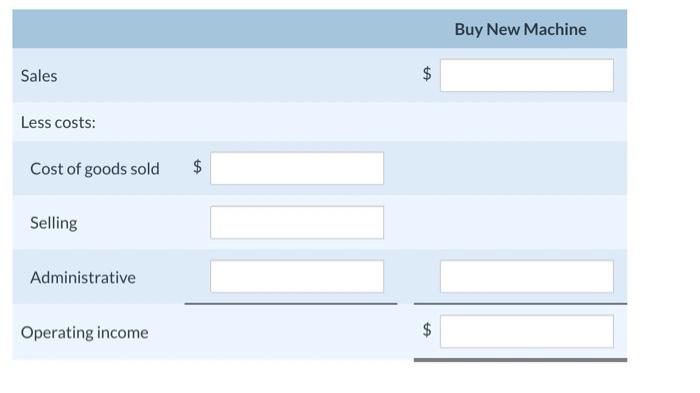Sheffield Company is considering the purchase of a new machine. The invoice price of the machine is $132,000, freight charges are estimated to be $4,000, and installation costs are expected to be $6,000. The salvage value of the new equipment is expected to be zero after a useful life of 5 years. The company could retain the existing equipment and use it for an additional 5 years if it doesn't purchase the new machine. At that time, the equipment's salvage value would be zero. If Sheffield purchases the new machine now, it would have to scrap the existing machine. Sheffield's accountant, Lisa Anderson, has accumulated the following data for annual sales and expenses, with and without the new machine: 1. Without the new machine, Sheffield can sell 11,000 units of product annually at a per-unit selling price of $100. If it purchases the new machine, the number of units produced and sold would increase by 10%, and the selling price would remain the same. 2. The new machine is faster than the old machine, and it is more efficient in its use of materials. With the old machine, the gross profit rate is 25% of sales, whereas the rate will be 30% of sales with the new machine. 3. Annual selling expenses are $169,000 with the current machine. Because the new machine would produce a greater number of units to be sold, annual selling expenses are expected to increase by 10% if it is purchased. 4. Annual administrative expenses are expected to be $94,000 with the old machine, and $106,000 with the new machine. 5. The current book value of the existing machine is $34,000. Sheffield uses straight-line depreciation. Prepare an incremental analysis for the five years that shows whether Sheffield should retain the existing machine or buy the new one. (Ignore income tax effects.) (If an amount reduces the net income then enter with a negative sign preceding the number or parenthesis, e.g. 15,000,(15,000). Enter all other amounts as positive and subtract where necessary. Do not leave any answer field blank. Enter 0 for amounts.) Sales Less costs: Cost of goods sold Selling Administrative Operating income \begin{tabular}{|c|c|c|c|c|c|c|} \hline & & \begin{tabular}{l} Retain Old \\ Machine \end{tabular} & & \begin{tabular}{l} Replace Old \\ Machine \end{tabular} & & \begin{tabular}{c} Net Income \\ Increase (Decrease) \end{tabular} \\ \hline Operating income & $ & & $ & & $ & \\ \hline \multicolumn{7}{|c|}{ Cost of the new machine } \\ \hline Totals & $ & & $ & & $ & \\ \hline \end{tabular}










